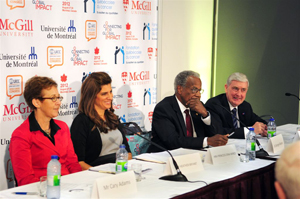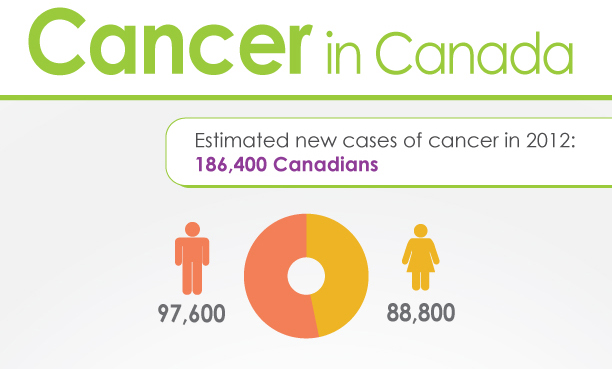Canadian advances to be showcased at international cancer conference
August 28, 2012

“Canada’s cancer community can learn a great deal from our international colleagues and also share the valuable lessons we have learned working together to drive improvements,” says Dr. Heather Bryant, Vice-President, Cancer Programs, Clinical and Population Health with the Canadian Partnership Against Cancer and co-chair of the Congress’ scientific programme committee. “From establishing culturally-responsive cancer control measures within indigenous communities, to improving the patient experience, to systematically measuring and reporting on the performance of the cancer system, we have a unique Canadian perspective to offer.”
Sharing knowledge to improve cancer care at a systems level and in turn reduce the burden of the disease is part of Canada’s approach to cancer control and one that will be evident throughout the conference. As one of the few countries with a national cancer strategy – an action plan for a coordinated response to the challenge of cancer – Canada has cultivated a collaborative approach that supports cooperation and exchange between cancer organizations and agencies provincially and in the territories, as well as nationally. Many of these organizations will be profiling the work they have advanced through a coordinated approach, as well as regional best practices from which others can learn.
“Shared priorities such as the System Performance Initiative, National Staging Initiative and Colorectal Cancer Screening Initiative focus on improving access to accurate data and related tools, thereby optimizing planning, investment and delivery throughout the cycle of cancer control,” adds Dr. Bryant. “Many partners in Canada’s cancer strategy will be sharing examples of the quick and consistent progress that has been enabled through a coordinated approach, and we in turn look forward to learning from the experiences of other organizations around the world.”

The World Cancer Congress is organized by the Union for International Cancer Control (UICC). This year’s congress is hosted by Fondation québécoise du cancer, McGill University and the University of Montreal Hospital Centre. Keynote speakers will present plenary sessions related to four content areas: prevention and early detection, cancer care and survivorship, palliation and pain control, and systems in cancer control, while a global village will provide opportunities for networking. Prior to the Congress, the annual World Cancer Leader’s Summit, which aims to influence international health policy and secure a strategic response to the global cancer epidemic, was attended by over 250 delegates.
About the Canadian Partnership Against Cancer
The Canadian Partnership Against Cancer is an organization funded by the federal government to accelerate action on cancer control for all Canadians. Bringing together cancer experts, government representatives, patient and survivor groups, including the Canadian Cancer Society and the Canadian Cancer Action Network to implement the first pan-Canadian cancer control strategy, the vision is to be a driving force to achieve a focused approach that will help prevent cancer, enhance the quality of life of those affected by cancer, lessen the likelihood of dying from cancer, and increase the efficiency of cancer control in Canada. The Partnership is also the driving force behind cancerview.ca, an online community linking Canadians to cancer information, services and resources.
